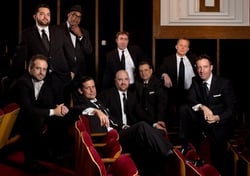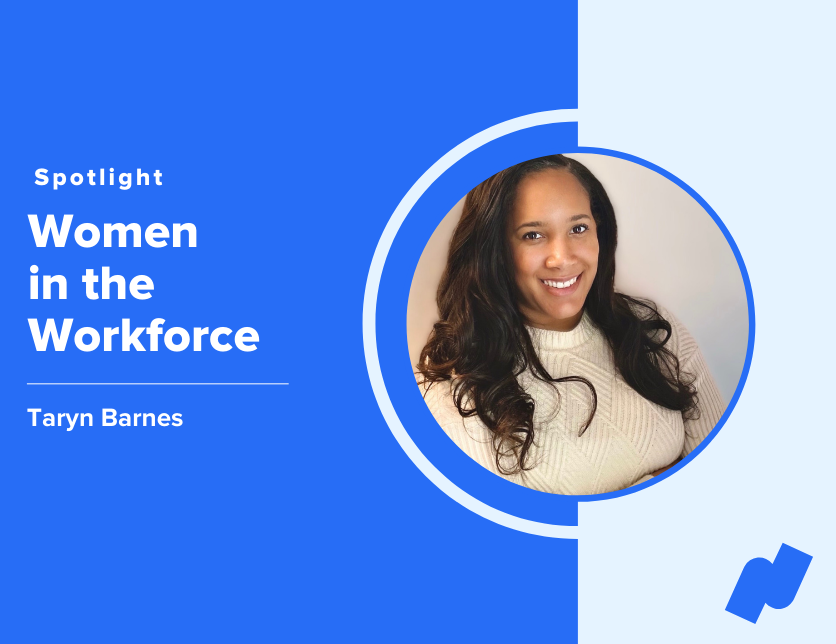
What Improv Theater Can Teach HR


With a reputation as “the fun police” or “the principal’s office,” it’s hard to imagine HR as the place employees can go for an easy “yes.” However, in their new management book, Happy Accidents: The Transformative Power of “Yes, And” at Work and in Life, improv comedy troupe Four Day Weekend shares how their improv strategies are an effective business model.
To learn more about how improv practices can support a more creative and collaborative company culture, we spoke with Four Day Weekend co-founder, Frank Ford.

What was the inspiration behind Happy Accidents?
Frank Ford: Happy Accidents is an autobiographical look at our journey over the last 21 years as we built our business. What’s great about improv comedy is that it’s all about collaboration and teamwork. The philosophy that is fundamental to all improvisation is called “yes, and” [an exercise where participants must actively listen to a partner on stage, acknowledge and accept what they are saying as real, and then add onto it] Our book chronicles how we built the Four Day Weekend business and shares how we applied the improv philosophy that we use on stage to our business model and culture.
We started a show in 1997 that was supposed to have a six week run. Before we knew it, six weeks turned into six months, then six years, and now it’s been 21 years (and counting!). But none of us were business majors. So as we grew, we had to ask ourselves, what kind of business model do we want to operate from?
The “yes, and” philosophy is all about accepting ideas in the moment, being present and non-judgemental, and building on those ideas with a very unselfish approach. It hit us like a ton of bricks, and we realized that we could apply those same principles to our business.
The book explores how the “yes, and” framework led to great success, along with the risks of deviating from it. We explore the power of active listening, collaboration, and teamwork, resulting in a more positive approach to work, life, and relationships. It really is transformative!
How can companies get started implementing a “yes, and” philosophy?
FF: The fastest growing part of our business has been our workshops, in which we .help clients implement this philosophy in their culture. Corporate America can often be a cynical environment, and over time, this negativity becomes ingrained in our psyche. People are paid very well to say no, and good ideas often get thrown away before they have the chance to develop into something great.
In business, everything tends to be seen as black and white, but in our world, we tell our clients that there is no right and wrong, there are only higher and lower percentage choices. If you create an open culture where employees feel engaged and listened to, they'll be more willing to contribute ideas that help the business grow.
Many companies who have completed our workshops say that simply integrating “yes, and” into the everyday lexicon helps everyone listen with a more open mind. In that environment, more ideas can flourish because employees feel that they are really being heard.
One immediate and easy thing companies can do is to simply practice saying “yes, and.” While I am a professional improviser, however every single one of us is an improviser of sorts. We all improvise every day without realizing it. The world is but a stage, and we can choose to improvise in a positive environment rather than a negative environment.
HR is sometimes forced to be the bearer of bad news. How can HR create a more positive work environment?
FF: HR is often put in the position of being a naysayer. We do a lot of corporate events and often jokingly ask “is HR in the room?” There is that stigma attached to HR, because HR is responsible for ensuring that employees are honoring the company policies and values. But at the end of the day, HR is dealing with people in the same way that managers deal with their employees, and they can apply “yes, and” to the HR function too.
As the ears and eyes of the company, HR is on the front lines of identifying a company’s challenges. Active listening is crucial to finding “yes, and” solutions, and HR is well-positioned to initiate conversations that can solve whatever obstacles a company may face. HR has the opportunity to be thought leaders within a company.
In the real world, you have to say no sometimes, but with “yes, and” there’s always a workaround. If you’re going to say no make sure it’s a thoughtful no—not a reactionary, knee-jerk no.
Is there a danger in saying “yes” too much?
FF: It’s important to create a culture that rejects the dog-eat-dog mentality. You have to be careful not to work people to death, or else you’re going to see burnout. If the company understands employees need that time to recharge, you’ll see better performance and happier employees.
As human beings, we’re hardwired to be empathetic, but unfortunately it sometimes takes a disaster for that to surface. People are inherently more similar than different, and we try to promote those natural human instincts to help each other, rather than give into that cut-throat approach to business. Collaboration and empathy are a part of who we are, so why not embrace that and bring that into our business and culture?

See how Namely's flexible solution will help you streamline your HR processes by having your people, payroll, and benefits info all in on place.
Get a demoYou May Also Like
Get the latest news from Namely about HR, Payroll, and Benefits.
Thanks for subscribing!


Get the latest news from Namely about HR, Payroll, and Benefits.
Thanks for subscribing!




